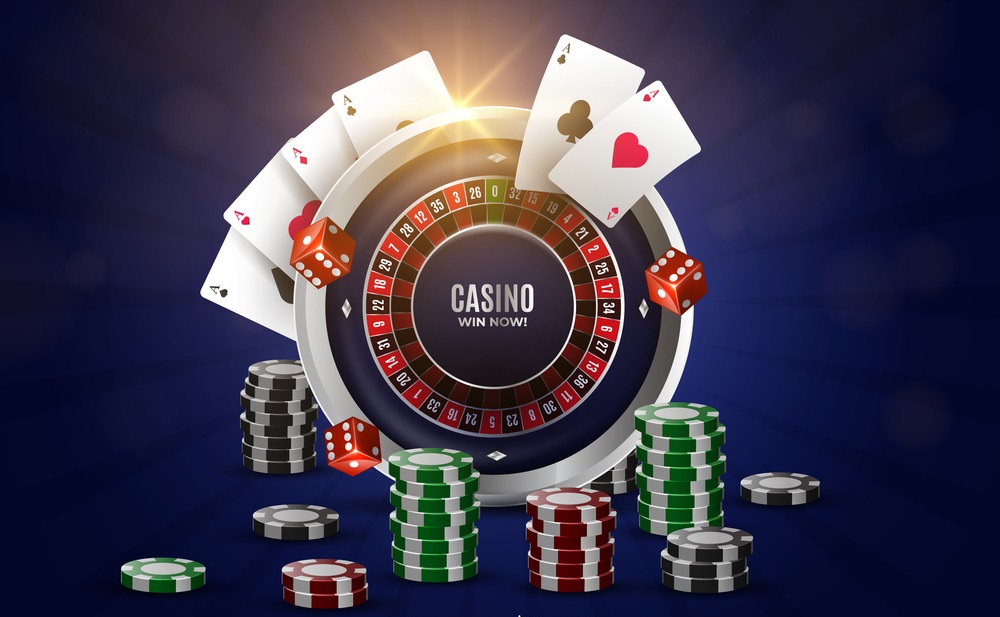When entering a casino, it is essential to understand the influence of luck and skill in various games. Games like poker and blackjack demonstrate the balance between chance and strategy. Exploring how luck and skill interact can offer insights that may impact your approach to gameplay.
By analyzing the roles luck and skill play in different casino games, you can potentially improve your chances of success. Understanding this dynamic can enhance your decision-making and overall experience in the casino environment.
The Spectrum of Luck and Skill
When examining casino games, it’s essential to consider the intricate balance between luck and skill. In most casino games, success is influenced by a combination of these factors. Luck is a predominant factor in games like slots and roulette, where outcomes are entirely random. Betting strategies are the only thing remotely related to skill there.
However, as one transitions to games such as poker or blackjack, skill becomes increasingly crucial. These games demand strategic thinking, decision-making abilities, and the capacity to analyze opponents’ moves. While luck can impact short-term results, skill tends to prevail over the long term.
Understanding the position of a game on the luck-skill spectrum is beneficial for approaching it with the appropriate mindset, enhancing one’s chances of success in the casino environment.
Game Analysis: Slots and Roulette
In casino games such as slots and roulette, chance plays a significant role in determining the results. In slots, the outcome is entirely random as the spinning reels generate unpredictable combinations. There’s no strategy that can influence the results in slots, making it a game solely based on luck.
Similarly, roulette relies on chance as the ball landing on a specific number or color on the wheel is unpredictable. Players can make bets based on various options, but ultimately, luck determines the winning outcome. These games offer entertainment through their uncertainty, appealing to those who enjoy the randomness of luck-based outcomes.
While luck is the primary factor in slots and roulette, games like poker require strategic thinking and skill to succeed.
Strategic Thinking in Poker
Strategic thinking significantly influences the outcomes of poker games. It’s a critical aspect of the game that involves analyzing opponents, assessing probabilities, and making well-thought-out decisions. Strategic players rely on their knowledge and skills rather than luck to gain an edge. Factors such as hand strength, position, and opponent behavior are carefully considered to make informed choices that enhance winning chances.
Tactics like bluffing, reading tells, and adapting strategies to the game’s dynamics are integral to strategic thinking in poker. Success in poker isn’t solely determined by the cards dealt but by how they’re played. Developing strategic thinking in poker can lead to more consistent success and improved overall performance at the table.
Blackjack: Skillful Decision-Making
Effective decision-making is crucial in the game of Blackjack. Players need to carefully assess their own hand, the dealer’s upcard, and the overall game situation to make informed choices. Deciding whether to hit, stand, double down, or split pairs requires a good understanding of the game’s basic strategy. By following this strategy, players can reduce the house edge and improve their chances of winning.
It’s important to analyze the cards on the table, calculate probabilities, and make rational decisions based on logical reasoning. Developing decision-making skills is key to enhancing one’s performance in Blackjack and gaining a competitive advantage. Each decision made during the game can have a significant impact on the final outcome, underscoring the importance of making well-considered choices.
Leveraging Luck and Skill Efficiently
Efficiently combining luck and skill is crucial in the context of casino games. To optimize your gameplay experience, it’s advisable to adhere to the following strategies:
-
Understanding the Game: It’s essential to thoroughly comprehend the rules and strategic aspects of the game you’re participating in. This knowledge can significantly enhance your decision-making process during gameplay.
-
Regular Practice: Engaging in consistent practice sessions can refine your skills and proficiency, thereby potentially increasing your likelihood of achieving favorable outcomes. Practice plays a pivotal role in honing your abilities and adapting to different scenarios within the game.
-
Bankroll Management: Establishing and adhering to financial limits is imperative to avoid excessive losses. Effective bankroll management ensures responsible gambling behavior and safeguards your resources for sustained participation in the game.
-
Maintaining Composure and Focus: Maintaining a composed and focused mindset is essential when navigating the uncertainties of luck and leveraging your skills effectively. Avoiding impulsive decisions and distractions can contribute to a more strategic approach, allowing both luck and skill to influence your gameplay positively.
Conclusion
In conclusion, striking a balance between luck and skill is crucial in casino games to improve your winning probabilities. Luck has a substantial impact on games like slots and roulette, where outcomes are largely random. Conversely, games such as poker and blackjack require strategic thinking and decision-making skills to influence the results. By comprehending the nuances of each game and effectively combining luck and skill, players can tilt the odds in their favor and enhance their overall gaming experience. It is essential to approach each game with a blend of luck and skill to maximize your chances of success.
